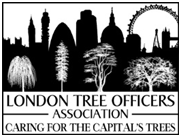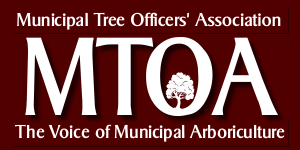Our friends at the Greater Yorkshire Tree Officer Group have Professor Alan Simson talking about the emerging role of urban forestry in the new european urbanism on the 8th May 2015 in York. This talk is free to attend. Further details below. If you want to attend please e-mail Paul Casey at Paul.Casey@harrogate.gov.uk
1-3:30pm – Professor Alan Simson (The Emerging Role of Urban Forestry in the New European Urbanism) – Including Q&A
Talk Outline
Human beings have had a long, deep cultural relationship with trees, woodlands and the landscape. This relationship transcends national cultures, and sits happily as an equal alongside our scientific, economic, ecological and spiritual relationships. Indeed, as W H Auden reminded us, ‘A culture is no better than its woods’. Thus trees have been a vital component of our cultural relationships with our landscapes since time began. There are those who believe however that, as Europe became a collection of urban communities – the UK officially becoming urban in 1851 – these links with trees became out-dated, as other issues became more pressing. They couldn’t be more wrong.
This talk will suggest that the concept of ‘urban forestry’ was born in the UK by the Quaker Industrialists of the Industrial Revolution, trace how the concept evolved, initially through the Garden City Movement, and illustrate how subsequently urban forestry has been developing a cannon of research – work that Leeds Beckett has been involved with – and how the concept has been making appreciable progress up the political agenda in Europe over recent years. This has been assisted by the fact that it has begun to develop an identifiable ‘European’ style, as opposed to practicing a version of the North American approach developed in the 1960’s.
This is significant, as Europe is in the process of undergoing profound change, change that originally was concerned with the unification of the continent and thus was essentially economically driven, but which now increasingly considers matters as diverse as the suspension of national borders and easier pan-continental travel. From a continent of competing countries, we are becoming a continent of competing regions and cities. One region’s gain can be another city’s loss and this is increasingly creating urban instability. This phenomenon is also mirrored in other parts of the developing world.
Although many European cities have reached the limits of conventional growth, they continue to expand. Thus the rules of the game are changing and this lecture will suggest that the conventional approaches to regulating urbanization are failing, as they are all too often seen as formulaic and unsustainable and thus are unable to attune to the increasingly unstable urban conditions. The talk will further suggest that, unlike the conventional approaches to urbanism, urban forestry is able to deal with these unstable conditions because it continually adapts and transforms and can accommodate a myriad of forces and initiatives and, as a result, move beyond the ‘green cosmetic’ to become an integral part of a new, more sustainable European urbanism.
The talk will be illustrated with examples from my own urban forestry journey of exploration and research, and will conclude with the suggestion that urban forestry is emerging as the prime catalyst for sustainable urbanism in Europe, on the basis that true wealth can only really be measured in terms of the well-being of people and the cultural sustainability of their environment.
Venue Address
City of York Council, West Offices, Station Rise, York, Y01 6GA
Location details are as follows: http://www.york.gov.uk/info/200167/customer_services/776/west_offices_customer_centre
The venue is within easy walking distance of the train and bus stations. The web-links below will be of use (If travelling by car, Nunnery Lane is the closest car-park):
http://www.york.gov.uk/info/200216/parking
http://www.york.gov.uk/info/200233/car_parks/324/car_parks/12


